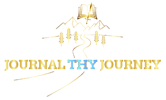And these (Bereans) were more noble than those in Thessalonica, for they received the Word with all readiness, daily studying and examining (G350) the Scriptures if these things are so. The Greek word for “examine” is Anakrino. Please see the Strong’s Concordance definition.
In this and all Food for Thoughts I recommend you read the Scripture(s) provided and the entire chapter they are from to obtain more insight.
Definition of the Greek word Anakrino G350:
- examine or judge
- to investigate, examine, enquire into, scrutinize, sift, question
- specifically in a forensic sense of a judge to hold an investigation
- to interrogate, examine the accused or witnesses.
- to judge of, estimate, determine (the excellence or defects of any person or thing.
Acts 17:11 (HRB) speaks of the people in Berea who were ready, eager, and excited to hear the Word of YHWH (YAHWEH) taught. The Apostle Paul and Silas, his brother in the faith, came to teach the good news and declare Yahshua (Yah is Salvation) the Messiah. For some, this was a controversial message. Still, the Bereans were eager to hear this revelation and the Holy Scriptures Paul taught. In this aspect, the Bereans do not differ from some modern-day believers eager to listen to the Word of (YAHWEH). Many believers attend church, conventions, and religious conferences such as “Women Thou Art Loosed” or the “Unleash Conference” with readiness of mind. However, this is where the similarity between Bereans and most modern-day believers ends.
Despite their enthusiastic eagerness and willingness to hear and learn, the Bereans did not blindly take Paul’s word for it (Colossians 2:8). They examined (G350) the Scriptures (Old Testament) to see if what they were hearing or being persuaded to believe aligned with the Scriptures. (Keep in mind that the New Testament did not exist yet.) The Bereans were daily studiers of the Scriptures. This daily studying afforded them the ability to check the accuracy of Paul’s teachings via the Scripture and confirm what Paul taught. Perhaps the Bereans confirmed the over 300 Old Testament prophecies Yahshua fulfilled in his earthly ministry. studying studying.
Although they were not ministers, they exemplified the practices of 2 Timothy 2:15, demonstrating a committed effort in studying and following the teachings of the Scriptures. See (Pt. 3) of the series for more on 2 Timothy 2:15 . They also personified Joshua 1:8(HRB) regarding their meditation on Scripture – This book of the Torah shall not depart out of your mouth, and you shall meditate on it (The Word of YAHWEH) by day and by night, so that you shall be on guard to do according to all that is written in it. For then you shall prosper your way, and then you shall act wisely.
The Bereans showed great initiative in gaining more knowledge and understanding about YAHWEH and Yahshua. They did not become complacent or blindly accept things told to them. Daily, they took the time to delve into the Word of YAHWEH; this allowed them to learn it, grow in faith, and apply it to their lives. As BBB (Bible Believing Believers), we should follow in the Bereans’ footsteps when reading and studying the Word of YAHWEH. Our goal should be to further our understanding of the Scriptures and grow spiritually, which will take daily determination and discipline. Also, remember that it is YAHWEH who opens the mind to understand the Scriptures (Luke 24:45) so be prayerful and keep your will surrendered to His will. Keeping all of that in mind, there are a few things one should NEVER do.
Things to NEVER do
Ignore the front of the Bible:
The only way to fully understand the back of the Bible (The New Testament) is to read and understand it in light of the front of the Bible (The Old Testament). Would it not be strange if a person took a novel with 25 chapters, skipped to chapter 15, and started describing with pinpoint accuracy the intent of the main character, whom they know nothing about? It would be somewhat impossible. The same is strange for a person to skip or ignore 39 books in the Bible and start at Book 40, expecting to fully understand what they are reading.
Over two hundred quotations from the Old Testament are located in the New Testament. When considering allusions and references to Old Testament verses, the number increases to nearly 1,000 or even more. Certain estimations surpass that figure. Also, Yahshua quoted or provided Allusions of the Old Testament in 180 of the 1,800 verses in the 4 Gospels, that’s 10% of those books.
Think about this, when Paul wrote 2 Timothy 3:16 – (Every Scripture is YAHWEH-breathed (given by His inspiration) and profitable for instruction, for reproof and conviction of sin, for correction of error and discipline in obedience, [and] for training in righteousness (in holy living, in conformity to YAHWEH’s will in thought, purpose, and action). So that the man of God may be complete and proficient, well fitted and thoroughly equipped for every good work.) there was no New Testament. There was just the Torah, the Old Testament, and the words of the Prophets, and yet people were accepting salvation through Yahshua. The Old Testament is critical; without it, there is no New Testament.
Ignore Context:
Examine Scripture in light of the entire chapter and book to truly understand it. For example, most of The New Testament were letters written by Paul; therefore, you should not take one sentence from one of the letters to get a complete understanding of the letter. Unfortunately, this concept is not universal, and many believe they can interpret Scriptures their own way, even if the interpretation goes against other Scriptures in the Word of YAHWEH. Allow Scripture to interpret Scripture, precept upon precept.
Place trust in man:
Is it possible that one or more of our beliefs could be wrong?
- How would we even know:
- Do we go by the longest-held beliefs?
- Do we go by what the majority believe?
- Do we go by what the “smartest” people believe—Our pastors, teachers, and theologians?
- Are the long-held beliefs of large groups of smart people always right?
The Answer to these questions is to use Scripture to determine the truth vs. falsehood. Place your trust in the Word of YAHWEH, not in fallible men or their traditions! Colossians 2:8.
Ignore Historical Context:
Acknowledging the Hebrew or Israelite people, culture, and customs of that time helps bring clarity to the Scriptures and ensures that the actual message is not lost.

The Bereans also embodied 1 Thessalonians 5:21: “Test everything or prove all things, hold fast to what is true.” They tested everything Paul and Silas told them by the Scripture and accepted what was true. You cannot test anything if you don’t or are not willing to study the Bible. If you don’t test things, you will be led astray (Col 2:8) and eventually destroyed for your lack of knowledge (Hosea 4:6).
In conclusion, as you draw closer to YAHWEH (James 4:8) through studying the Bible and praying, you may question many of your previously held beliefs, things your pastor, a preacher, or televangelist (TD Jakes, Joel Osteen, Joyce Meyer, etc.,) taught that were unbiblical or plain out wrong. This means that you have grown in knowledge and are beginning to test and prove all things according to Scripture. As you grow in your journey, pray to our Father YAHWEH for strength to make the correct decision, and remember He created us to be set apart, not like everyone else (Leviticus 11:45). Be holy, for I AM holy.
Things to think about:
How and when do I implement what the Bible says?
Do I continue to follow the majority or do what the Bible says?
Do I give up my will for the will of YAHWEH, my desires for His desires, and my wants for His wants?
